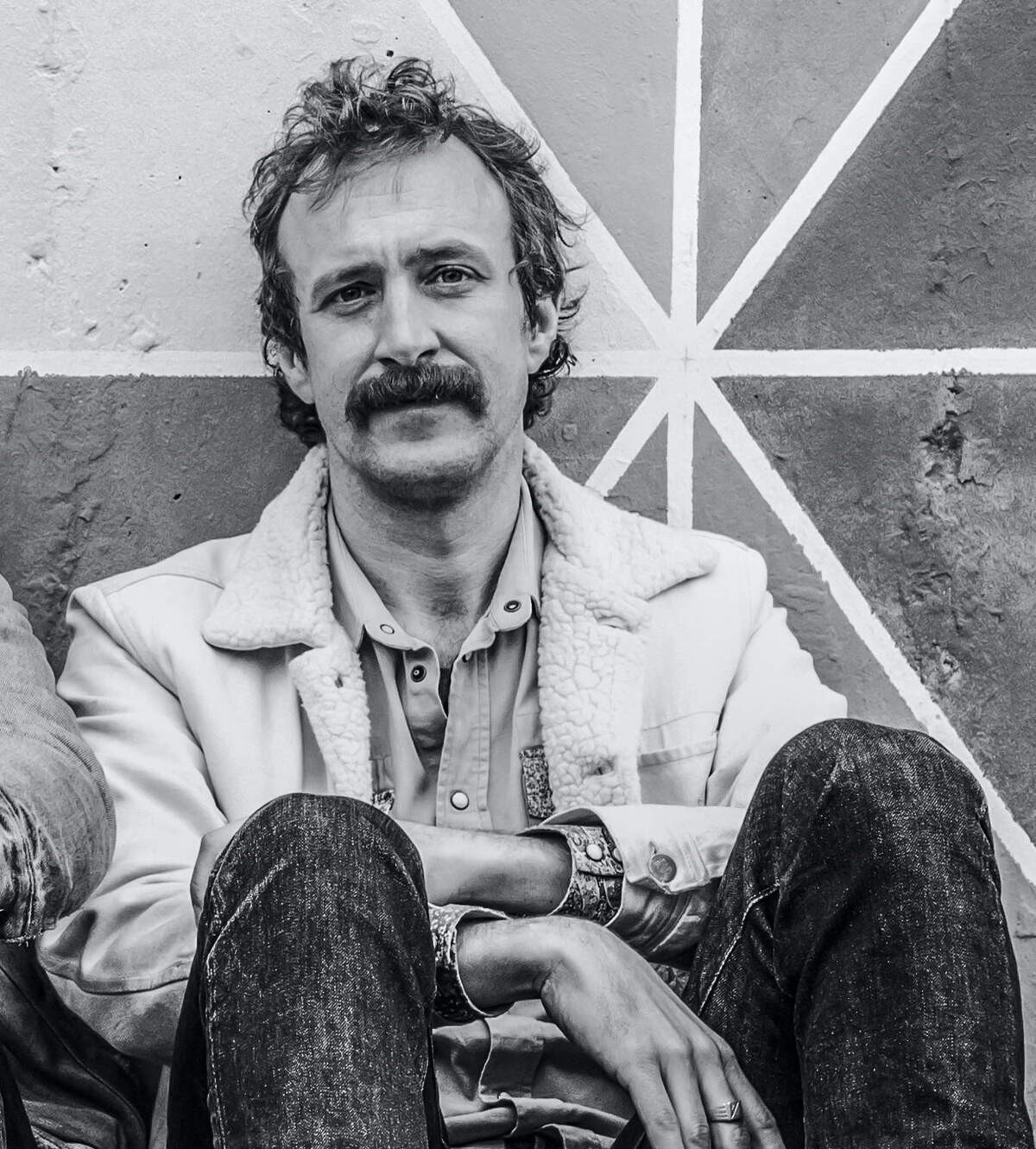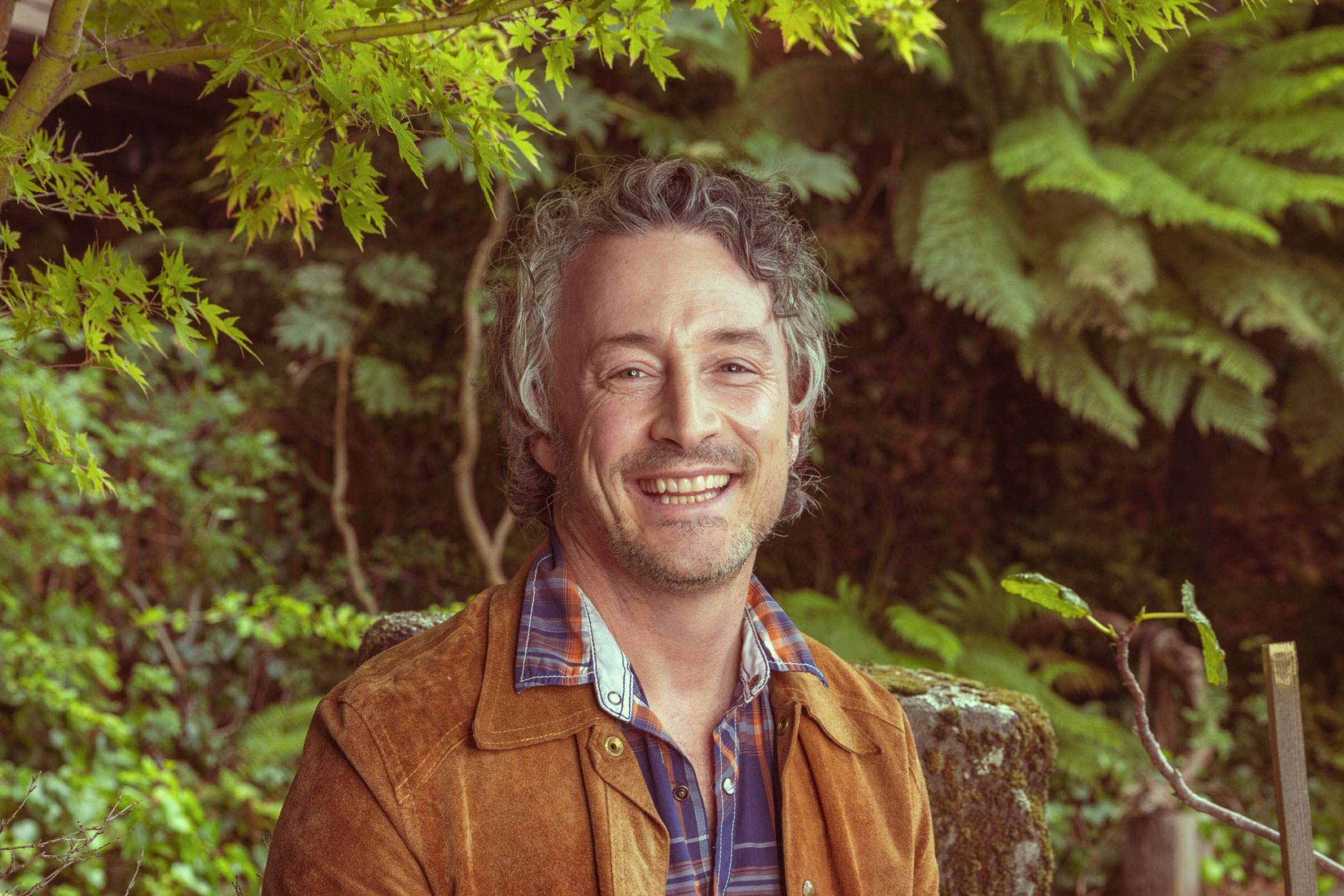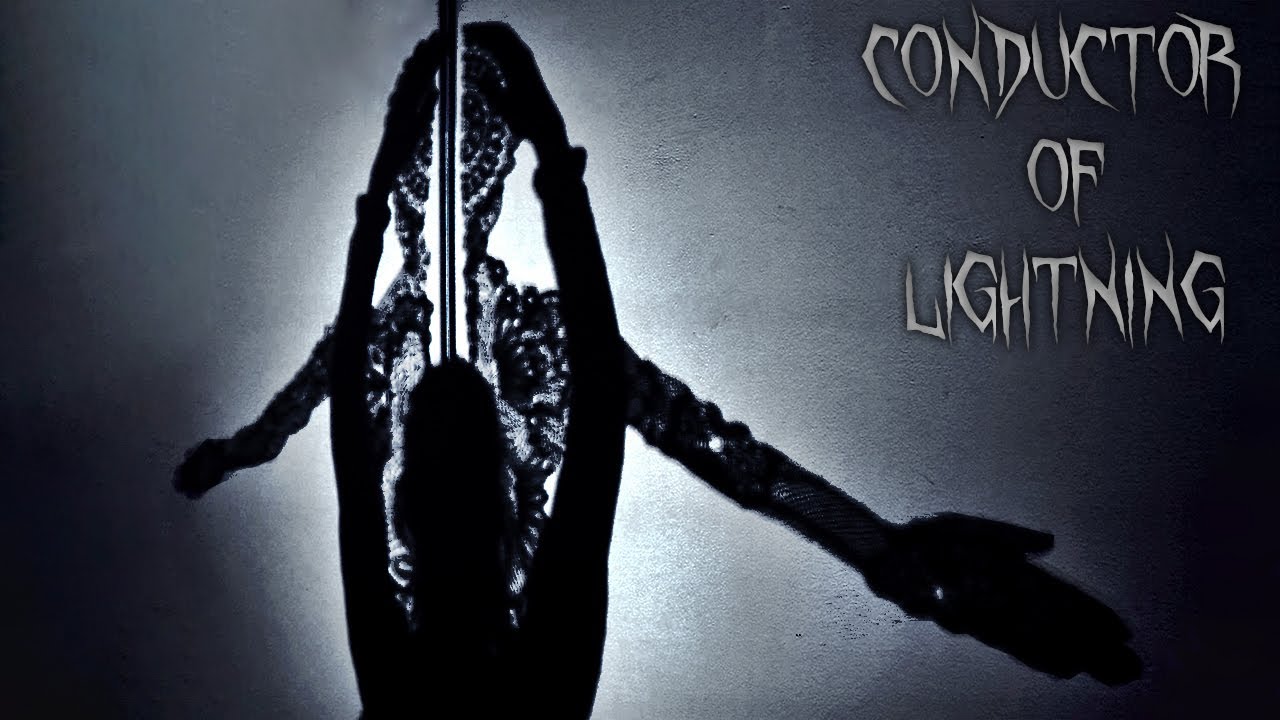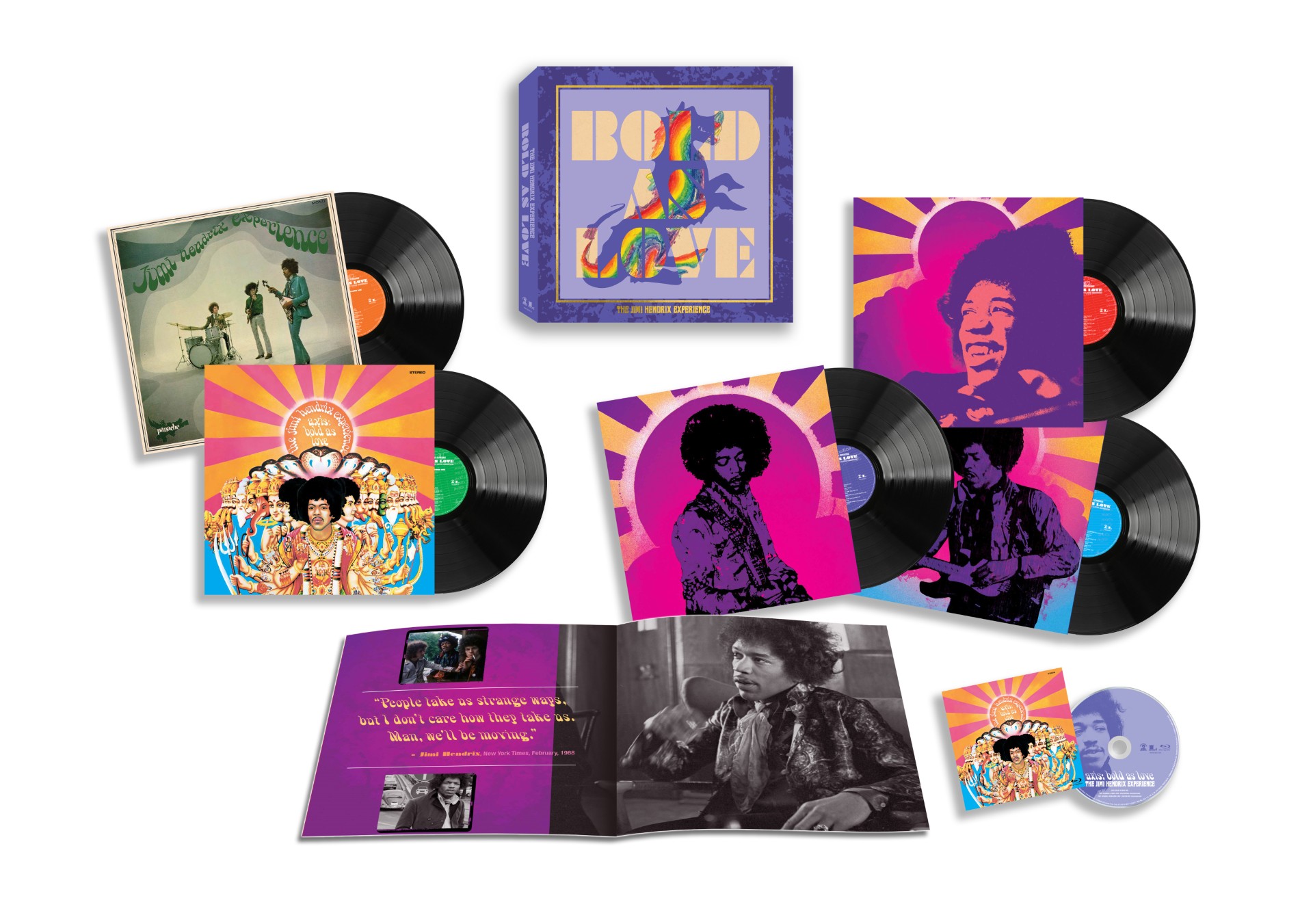‘Automagi’ by Græns | Axel Sjöberg | Interview
Exclusive track premiere of ‘Automagi’ by Græns, featuring Axel Sjöberg, the original drummer from Graveyard, alongside an interview with him.
This comes on the heels of their ‘Ground Score’ video premiere, giving us another glimpse into the unique and evolving sound of Græns.
Græns takes inspiration from the space between musical genres, focusing on a fluid, exploratory approach. Their first album had a rich, diverse soundscape that blended serious artistry with a nod to classic rock influences like Lou Reed. With ‘Ground Score & Automagi,’ Græns dives deeper into danceable beats, infusing them with echoes and delays akin to the Upsetter style. Although the Middle Eastern influences and their signature wild saxophone remain, this release introduces hypeman Galaxel, who brings a vocoder and autotune, adding an electrifying layer to the tracks.
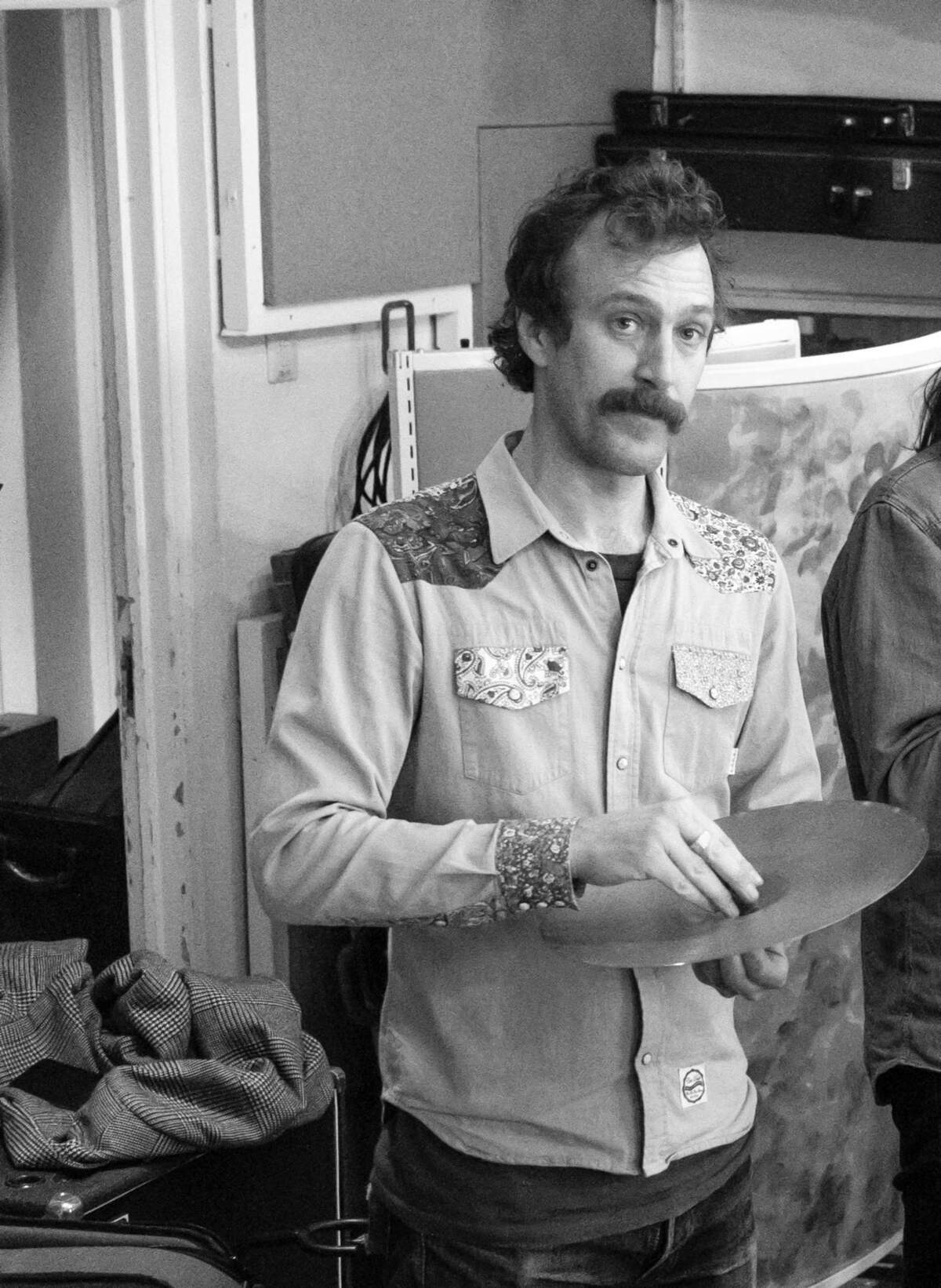
Backed by a crew of musicians from Gothenburg’s Kungstens area, Græns partnered with Fauna to create music that’s both experimental and designed to make you move. The album’s cover art is by Callum Rooney, background visuals by Lance Gordon, with video editing by Tobias Söderman. Græns continues to push boundaries, and ‘Automagi’ is no exception.
“I had a clear aim to make proper explorative psychedelic dance music”
Your music seems to embrace a fusion of genres and influences. How do you navigate the space between different musical styles while maintaining a cohesive sound?
Axel Sjöberg: First off, I think it’s good to clarify that it’s not my music; it’s the music of all the people involved. My role is more like a director or conductor, besides playing drums. As you said, I aim to embrace a lot of different influences. We share all kinds of different music with each other—what band doesn’t?—but I think we also actively incorporate those influences. It could be anything from the autotune vocals on Mdou Moctar’s album ‘Anar’ to Lil Yachty, or different skits between songs on hip-hop albums. I think what keeps our sound cohesive is mainly the production on our songs, but also the overall vibe we strive for: dance-friendly but a bit spaced out and experimental. And music is just like atoms or LEGO—you can put together whatever you like to build something new. What matters is the way you put it together.
Can you tell us more about the concept of “Ground Score & Automagi” and how it differs from your previous work?
The first album with Græns was a reaction to being “stuck” in rock music for a long time. Often, it’s just men playing for other men, and it can be very stagnant. So, I just wanted to explore and not worry about choruses or guitar solos. It was directed improvisation, something I needed to feel free. After I got that out of my system, I was ready to explore in a more structured way. I knew I wanted to make music that people could dance to, while also being explorative—familiar yet unfamiliar at the same time. So I started to jam with various people, and we had some good sketches, but a lot of them were in a gazillion bands… In the end, it was just me and Nicke (now on bass in The Population) recording the foundation for what would become ‘Automagi’. Lisen Rylander joined in on saxophone. But then Nicke had his first child, and the recording just sat on the shelf for a while. When Nicke was on parental leave, Axel Jonsson substituted on bass in The Population. He has a very nice 8-track Tascam and good recording skills. So we started to jam a bit, and when I felt we had found something, I got the energy back to get something going with Græns again. He’s one of those people who can play just about any instrument and has listened to seemingly every album ever made. He’s also a creative force, as is evident when you listen to the guitar and bass on ‘Ground Score’. I had a clear aim to make proper explorative psychedelic dance music.
The addition of Galaxel as a hypeman on your latest album brings a fresh dynamic to your sound. What inspired this collaboration, and how has it impacted your music-making process?
Galaxel (or Relaxel) is the third Axel in this band. I had met him a lot of times over the years, and he always wanted to talk music with me. At one point, he set up a show with The Population at an underground club, and from then on, we started to hang out more. I look more for energy than for skills when I want to work with people, and before I even knew how good he could play or sing, I knew I had to work with him in some way. He has a sweet combination of a gentle soul, lots of good energy, and a broad love of music. It’s kinda impossible not to love him. So when we had completed the basic tracks for ‘Automagi’ & ‘Ground Score,’ I just asked him if he wanted to do the vocals. By then, I’d seen him sing and play with his band Morrhår (whiskers). I loved it, and now he’s the singer and vibe master in Græns.
The visual elements of your music, from cover art to background visuals, seem carefully curated. Tell us about it.
Thanks! I guess my attitude is that if you care about your music (which you should), you also care about how it’s presented. So I try to pick the people I work with for that with care. I’ve admired Callum Rooney’s work for many years, but the decisive moment came after I bought a print from him. It looked so good on the wall, and it had the quality that I search for with Græns: when you’re not really sure what something is, but you feel it’s beautiful. So I contacted him and explained the concept of ‘Ground Score,’ and I felt we were on the same wavelength. Fast forward, and we have the cover for the 7”. If you pay attention, you can also see that it’s a homage to musicians that came before us.
As for the visuals, I knew I wanted a classic element from the history of psychedelia. On a tour with Graveyard and Radio Moscow is where I met Lance, a.k.a. The Mad Alchemist, for the first time. Since then, I have been following his work and how he has progressed. I knew from the tour that he is very devoted to what he does, since he loved every night and slept in Radio Moscow’s van. One time when we played in Salt Lake City (I think), the stage was very low, and there wasn’t really anywhere for him to stand to do his light show away from the audience. So he got bumped into a lot, and oil kinda flew from the plate onto the stage and floor. All of a sudden, a guy was being obnoxious and intimidating to a girl in the crowd, so our tour manager walked over onto the stage to grab him and talk to him. But it was so slippery from the oil that he sort of fell over/jumped on him, and the guy thought he was being attacked. Of course, a fight broke out, and then our guitar tech came, and he also slipped. For a while, everything was like Bambi on ice, but the situation calmed down, and the asshole was thrown out. Through it all, Lance made sure his gear was okay, and then he just continued as before when we started playing again, haha. You gotta respect that. And his artistic skills.
Hopefully, he’ll be coming over to Sweden in the fall to do two weekends with Græns and Fauna (the band).
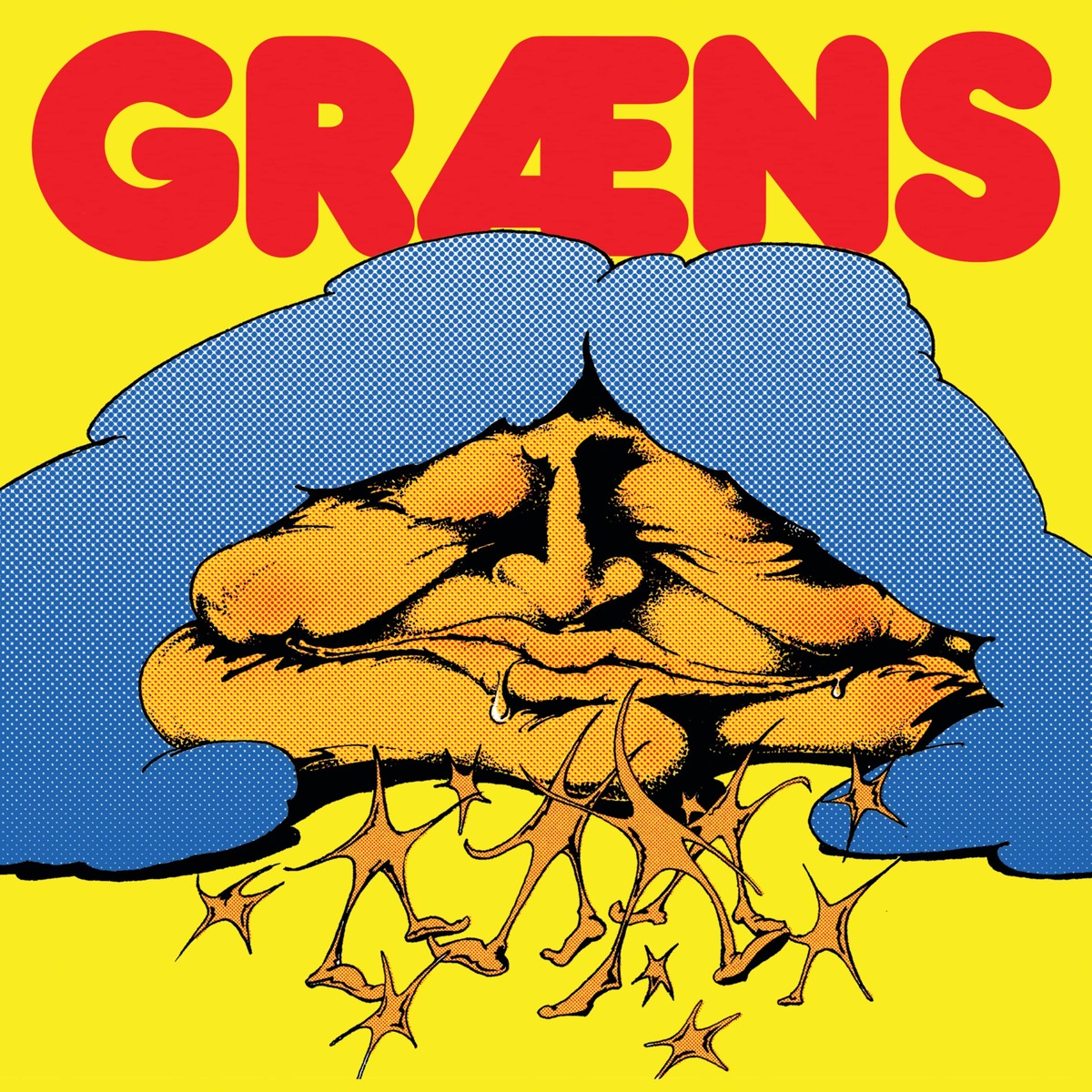
Your music incorporates influences from the Middle East alongside echoes of various other influences. What draws you to these particular influences?
I guess I’m curious. And music is just pulses or different kinds of flows. And sooner or later, you get tired of the same scales and rhythms over and over again. I like the feeling of discovering or realizing things. Sure, you can hone your craft and discover a myriad of things in the way you can play a regular four-beat. But that’s not for me. I probably won’t get much better technically, but I’d love to learn other stuff about drumming or music. One time I studied the drummer of Etran De L’air for a whole show. I probably won’t be even half as good as him, but I’ll have fun when I try to learn the rhythms he plays and see if there’s a way to combine it with an uncontrollable fuzz guitar or a vocoder maybe? Both in a lot of the North African and Middle Eastern rhythms, there is a different kind of forward motion than in “Western” rock styles. It can push you forward as much as a lazy two-beat drum part in a death’n’roll song – difference you can dance to it.
Tell me about the recording process and what kind of equipment did you use?
I have a Ludwig Vistalite that I use for most of the stuff I do now. But I try to “tune” it so it sounds more like cardboard boxes than, let’s say, a jazz kit. If the toms are dead, there’s more room for other sounds in the songs (like karkabebs/qrakebs). And I like crappy sounds, at the moment at least. ‘Automagi’ was recorded by me and Nicke at Ostronet – that’s my rehearsal space. I used to set up underground shows there for a while, but the cops thought it was too much fun so they came and busted the place when my friend had set up a show. Recording-wise, we kinda used whatever we had then. But I’m sure I used two ribbon mics from Extinct. They’re great for a whole lot of different stuff. We used them on the drums for The Population’s latest EP (unreleased yet). Nicke played on a Japanese Mosrite copy and an Orange amp. Lisen has old and expensive saxophones. We recorded Ground score in Ljudvalvet (the sound vault) where Hollow Ship resides, and Axel Jonsson is set up with his gear. He has too many fuzz pedals and Tascam 8-track that sounds great! Not sure what he used on that one, think it was Fender Jazz bass. For the vocals, we used a digital vocoder (‘Automagi’) and an autotune pedal (‘Ground Score’), and of course, a Roland space echo.
What’s next for you?
Right now, we have an intense period of getting a proper band together to perform at this year’s Psykstämman—a psychedelic festival in July, on an island outside of Gothenburg. It’s organized by Galaxel and Tommie from Fauna. Dungen is headlining one of the days, and there is a ton of amazing bands. If you haven’t made your vacation plans yet, now you know what to do. Tomo Katsurada from Kikagaku Moyo is going to do some sort of jam/performance too, I think.
So me and the two other Axels and Emma Jantze just had our first proper band practice today. That’s the Græns that will perform at Psykstämman. I’ve been a bit stressed about the live situation since we’ve mostly been in and out of studios. But today sounded great, and I walked out of Ostronet feeling happy and relieved. Emma nailed things, and it was her first practice. We literally first met a week ago. So now we’re writing new material to get ready for Psykstämman and more live gigs. Requests are already coming in, and just today, we were asked about a show in January. That’s what’s next, and I’m excited about it.
It would be fantastic if you could share some words about your background and how you originally got interested in music.
Well, as with most stories, you could make it a long one or a short one haha. I’ll try to find a path between those two. My folks weren’t so much into music, at least not in the way I am. But my dad sang in a folk choir that had a lot of protest/freedom songs from around the world on their repertoire. I have early memories of being grabbed by the power of those songs and standing up on a chair in the crowd to dance and sing along. I guess you can make a connection to when musicians talk about church music in the US? Anyhow, I took acoustic guitar classes when I was around the age of 10-12. But the teachers were mostly bores who didn’t manage to catch my interest. I quit the day when I had asked if we could play some punk or rock, and the teacher came back to me with an Icelandic folk melody and a signature theme from a popular Swedish TV show. From there, I headed straight into playing drums in a really bad punk band. The workers’ movement in Sweden built up a system with something called study circles—a group of people get together to educate themselves in whatever subject they choose. A lot of the Swedish music infrastructure is built on that—but now it’s under attack from the neoliberal and fascist forces that run Sweden at the moment. Anyhow… from there on, I stuck with the drums and sort of autodidacted myself into the position I am today. Maybe autodidact is a bit misleading—I’d say I’ve learned from everyone I’ve ever played with. And always tried to steal with style, haha.
What led you to Graveyard, and how do you remember your time with the band? What are some of the most memorable recollections of working on those albums?
This could be a full essay, you know… But Graveyard came from the remains of a band we had before that. That band was maybe more focused on other things than the music, if you know what I mean. As it tends to go, if you focus on other stuff, the music and the energy suffer. So Joakim, Rikard, and I teamed up with Truls (who wasn’t in the band for many years). Truls had been in a bunch of other bands in Gothenburg that we hung out with, so it was a pretty natural thing to ask him. He also has a special energy. My time with the band has, pretty obviously, defined my life in many ways. We put a lot of energy into making sure we made good music and worked hard to get the band off the ground, so to speak. It was fun times and hard times. I think you can more or less read three band biographies, and then you know the story of most rock bands. The details differ, but the general story is the same: likeminded people coming together in their freak identity and their love for music, working hard, use/abuse, men without words for feelings and bad communication skills, emptiness after success, more hard work, fatigue, etc.
But what I cherish the most is that all the touring schooled me technically and taught me a lot about the ways you can work with music to move/touch people. About dynamics and letting loose your energy. When we recorded ‘Hisingen Blues,’ we really had a good time. Good cooperation with Don Ahlsterberg and a very playful attitude. We tried lots of ideas and explored (within the boundaries of rock’n’roll). It was also a very good time in Gothenburg. Truckstop Alaska (the venue) meant so much for the city. People moved to Gothenburg from abroad because there was such a good scene in the city, and Truckstop was the hub where everyone got together. We could be on tour in some corner of the world, and people would speak very fondly about their visit there or when they played there. So when I think back, I’m very grateful to have experienced that period in Gothenburg and the opportunities and experiences that Graveyard gave me. It wasn’t just us that made Graveyard become an international band; it was the whole scene, all the people and bands involved, and Truckstop—it was a big wave built by a community—and I guess we jumped on the surfboard at the right moment.
Unfortunately, Truckstop had to close (as did many other venues—gentrification), but nothing lasts forever, as the lyrics go in a familiar song, haha. Anyhow, these days, I have the feeling that there’s a new wave coming in Gothenburg, blended with the electronic music scene maybe. Like the people I play with now in Græns, they were old enough to experience a part of that period, and now it seems like they are part of the crowd that is whipping up a new storm. I’m gladly taking part and doing what I can to support. Sometimes it feels like I’m looking down at my feet to see that the water on the beach is gone, only to hear the rumble of a new wave behind me. Just hope I can swim well enough to catch it, haha.
“Music is a hell of a drug”
You have also been part of many other projects. Could you share a bit about that?
Music is a hell of a drug. I often thought that I don’t really play that much since I quit Graveyard. But when I look back, I’ve done one album with Græns, two albums with Big Kizz, a Swedish kids album/book, an educational radio show about music, an album with The Population, and some other smaller side projects. So I guess I just keep on going and try to find stuff that interests me. New energy. But I’m very excited about this lineup of Græns and the new material we’re working on.
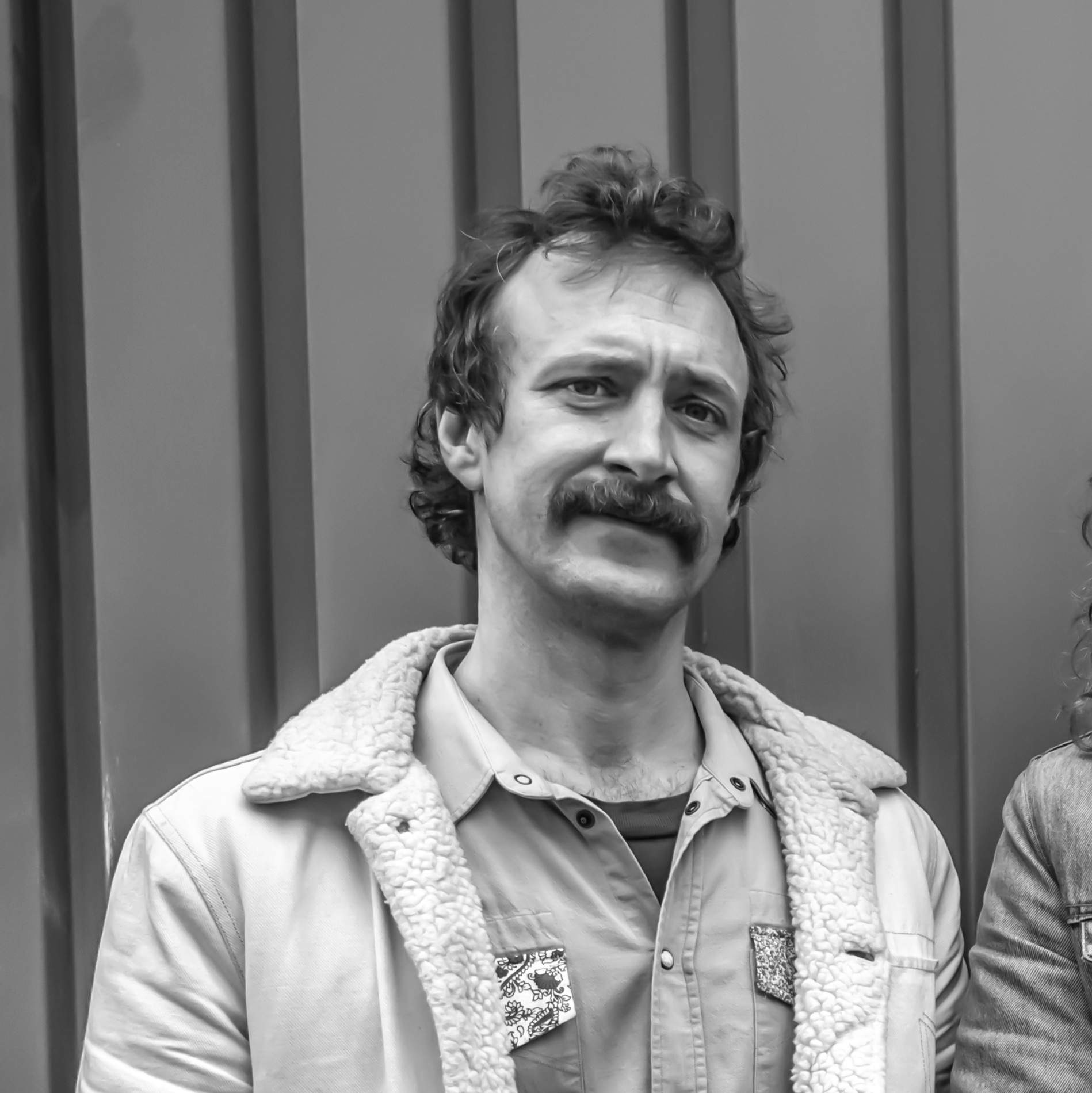
Let’s end this interview with some of your favorite albums. Have you found something new lately you would like to recommend to our readers?
One album I found recently that blew me away was Fuckwolf’s split (‘Let’s Split’) with Green Milk from the Planet Orange. It’s amazing! It’s live, raw, spaced out, a lot of dynamics and madness.
I also try to follow what the labels Nyege Nyege and Sahel Sounds put out. Especially Nyege Nyege seems to explore a LOT of new musical expressions that are very interesting. I look forward to discovering new music from sub-Saharan Africa in about ten years. My impression is that we’ve only seen a tiny bit of what is to come. And I don’t even think I have listened to a fraction of what’s already happening there.
An album that isn’t exactly new but is great is Black Sherif’s ‘The Villain I Never Was’. His voice is melancholic, smooth, and aggressive at the same time. Great lyrics too: “Of course I fucked up / Who never fuck up? Hands in the air, no hands?”
Shabaka – ‘Perceive Its Beauty, Acknowledge Its Grace.’
Arooj Aftab – ‘Vulture Prince’ (2021).
BCUC – ‘Elektronikalizer’ (new single). But check out their albums and also the live shows on YouTube. I saw them live two summers ago, and I was BLOWN AWAY. It had been a long time since I saw a live show like that.
Klemen Breznikar
Headline photo: Axel Sjöberg | Photo by Kerstin Ehrnlund
Græns Instagram
Fauna Website / Facebook / Instagram / Bigcartel
‘Ground Score’ by Græns

